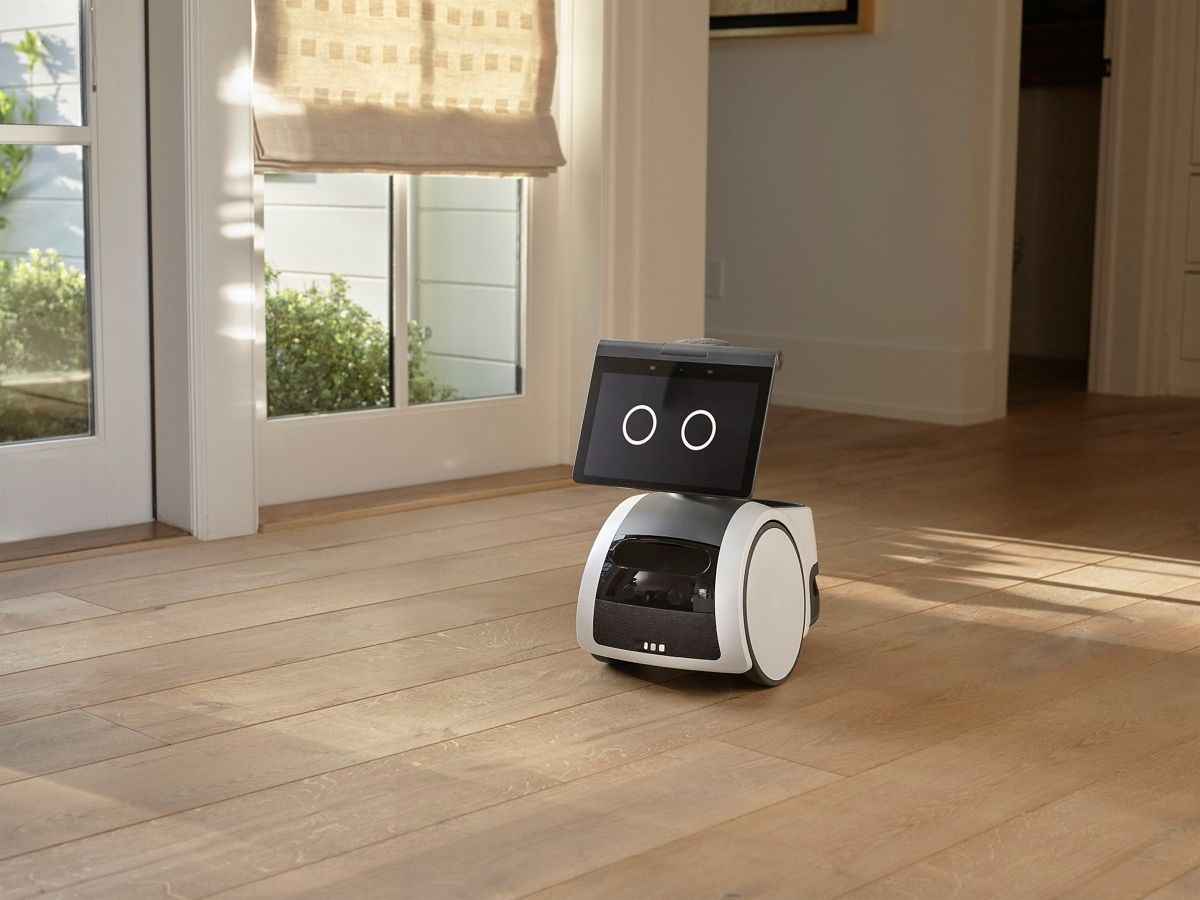At Amazon's fall event on Tuesday, the company officially unveiled the long-rumored Alexa-powered home robot. Dubbed Amazon Astro, the robot looks like something straight out of a science fiction movie and is unlike anything we've seen before from Amazon. Astro can do a wide range of things. It can recognize faces, follow you around the house, patrol your home when you're away, detect an unrecognized person or certain sounds (fire alarm, for example), and more. In addition, it can also do everything you would expect from an Echo Show device, like playing music, making video calls, getting answers, and so on.
If you were wondering about the software that powers Astro, it turns out the device runs Fire OS (via The Verge). For the unaware, Fire OS is Amazon's fork of Android without Google Mobile Services. While you would expect an Android-powered robot to be half-decent, leaks suggest that it's flat-out terrible. Several developers who worked on the Astro have reportedly criticized it for its incompetency, safety issues, and privacy risks.
According to leaked internal documents obtained by Vice, some Astro developers believe that it's not ready for public release and has some serious flaws. One of the developers associated with the project described the robot as "terrible," adding that its person detection feature is unreliable.
Astro is terrible and will almost certainly throw itself down a flight of stairs if presented the opportunity. The person detection is unreliable at best, making the in-home security proposition laughable.
The developer also bashed Amazon for pitching Astro as an accessibility device that can help with eldercare.
They're also pushing it as an accessibility device but with the masts breaking and the possibility that at any given moment it'll commit suicide on a flight of stairs, it's, at best, absurdist nonsense and marketing and, at worst, potentially dangerous for anyone who'd actually rely on it for accessibility purposes.
Meanwhile, another source described the robot as "a disaster that's not ready for release." According to the source, the device is fragile and "will almost certainly fall downstairs in real-world users' homes."
In a statement to The Verge, Amazon said the reports questioning the performance and safety of the robot were outdated and "simply inaccurate."
These characterizations of Astro's performance, mast, and safety systems are simply inaccurate. Astro went through rigorous testing on both quality and safety, including tens of thousands of hours of testing with beta participants. This includes comprehensive testing on Astro's advanced safety system, which is designed to avoid objects, detect stairs, and stop the device where and when necessary.
We'll have to wait and see how Astro actually fares in the real world when it reaches buyers later this year.

